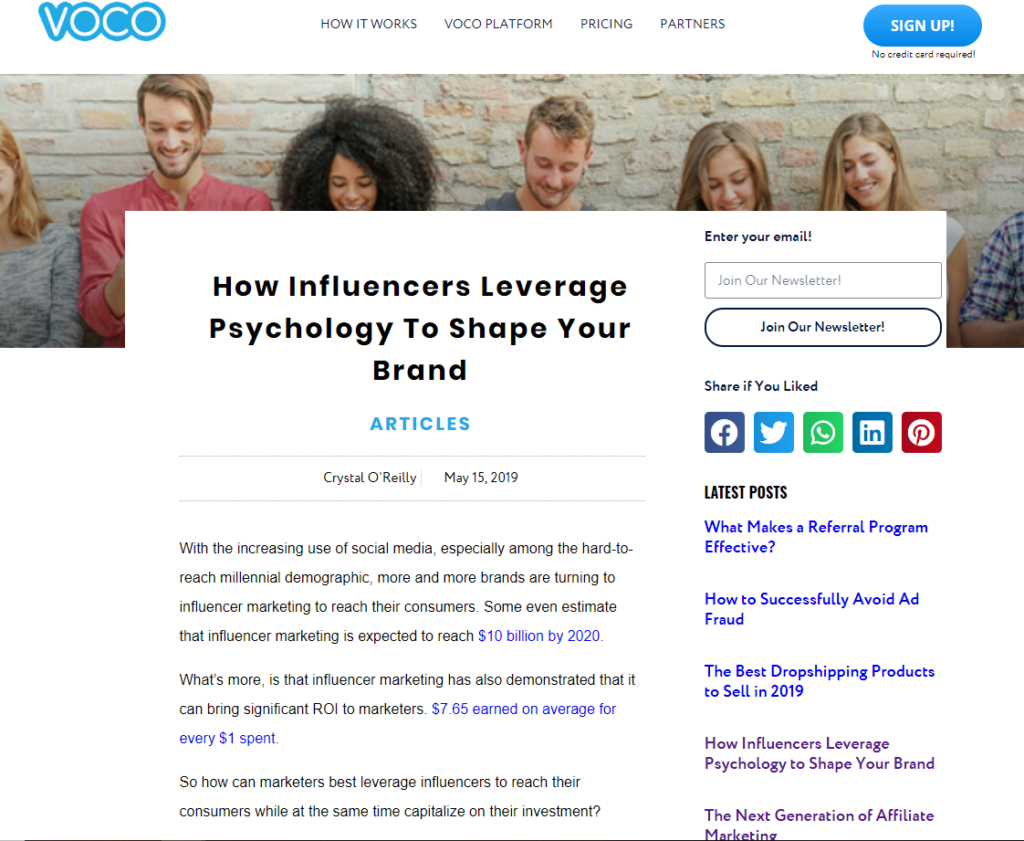With the increasing use of social media, especially among the hard-to-reach millennial demographic, more and more brands are turning to influencer marketing to reach their consumers. Some even estimate that influencer marketing is expected to reach $10 billion by 2020.
What’s more, is that influencer marketing has also demonstrated that it can bring significant ROI to marketers. $7.65 earned on average for every $1 spent.
So how can marketers best leverage influencers to reach their consumers while at the same time capitalize on their investment?
4 Psychology Principles Marketers Can Use with Influencer Marketing
Marketers have known for years that psychology greatly persuades and influences their consumers in powerful ways. Influencer marketing is one of the best ways to leverage many of these psychological techniques to better connect with consumers.
Here is an explanation of 4 different psychological principles with tips that marketers can use to leverage influencer marketing:
The Bandwagon Effect
Also known as herd behavior, the bandwagon effect means that the more you see others engaging in a behavior, or having a certain belief, the more likely you will adopt that belief or behavior as well.
(In other words, if everyone is jumping off a cliff, you might do it too).
Tip: Find an influencer with a lot of followers in your niche. Have them encourage your users to generate their own content using your product or service.
The Certainty Effect
Consumers are more likely to try a brand they perceive as having no risk involved. That’s why so many brands offer money-back guarantees or trial offers to new customers.
Tip: Focus on finding an influencer who is authentic and trusted by your consumers, rather than one with a lot of followers. (It can’t hurt if they’re attractive too, which we’ll discuss later). Have your influencer emphasize the limited risk involved with your product.
Social Identity Theory
People like to consider themselves as part of a group of similar individuals and define themselves through this group. That means the opinions of the group can influence consumers. This is especially true of millennial age consumers who could easily share your brand message with their social group through a recommendation engine.
Tip: Research how your consumers view themselves in terms of their social identity. Find influencers that these consumers would consider relatable and have similar identities.
Attractiveness Bias
People generally believe that attractive people have other positive qualities. This could also foster a willingness to listen to them speak about your brand.
Tip: When searching for an influencer, try to combine traits of authenticity, transparency, identity and attractiveness for the best chance to persuade consumers.
Select the Right Influencer Marketing Strategy for Your Brand
When implementing influencer marketing, you’ll find that it’s not always the influencer with the most followers that is the right one for your brand. In other words, reach doesn’t mean engagement.
With effective tools for your brand to enable consumers to recommend your product to other shoppers and their friends, you can engage with the perfect group of consumers for your brand.
A product recommendation engine such as VOCO is a perfect tool for encouraging the sharing of product recommendations, as the consumers share and discuss the products they love with their close social circles.
It’s about finding the right blend of authenticity, trust, and image to broadcast to consumers. Combine this with effective content and messaging and delivering that message to consumers who are most likely to listen.
Want to learn more? Join Voco to leverage influencer marketing in your product recommendations today!


